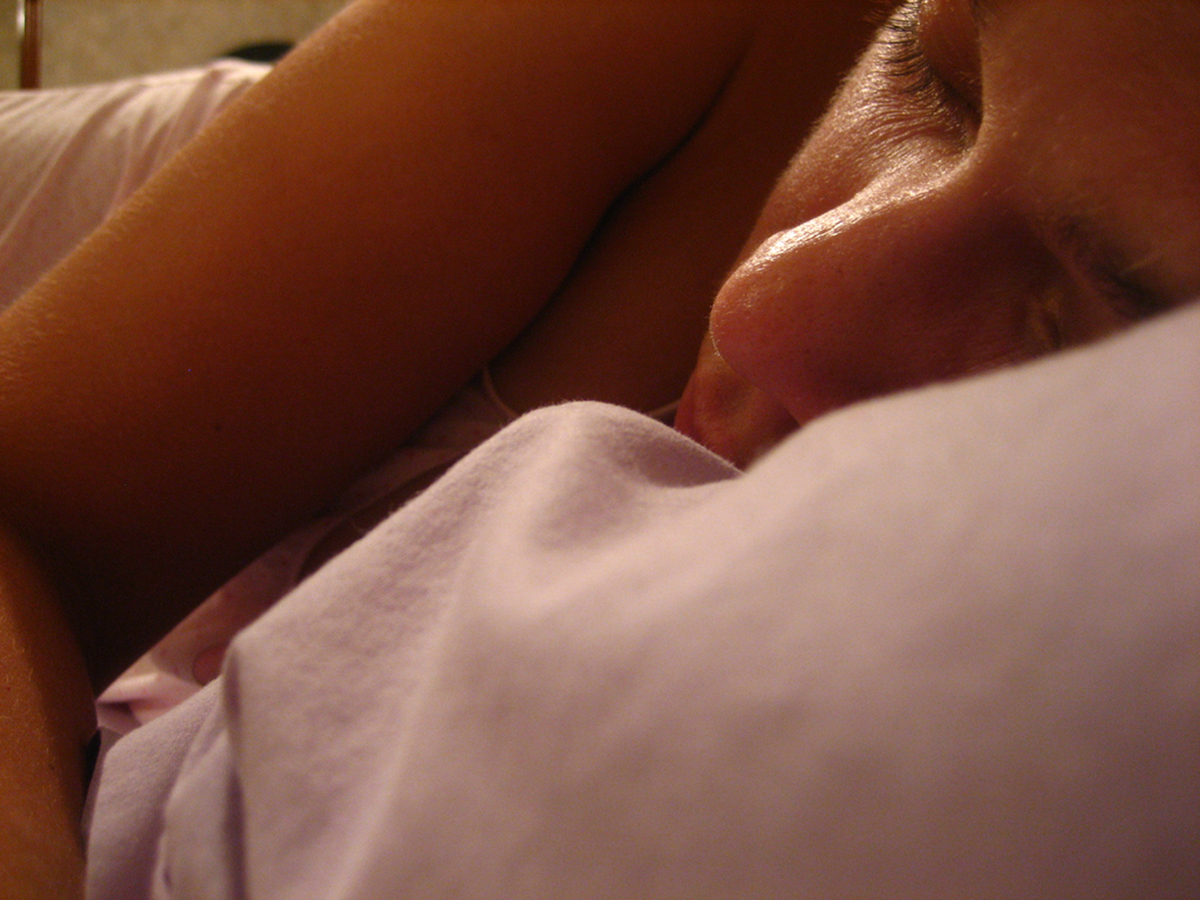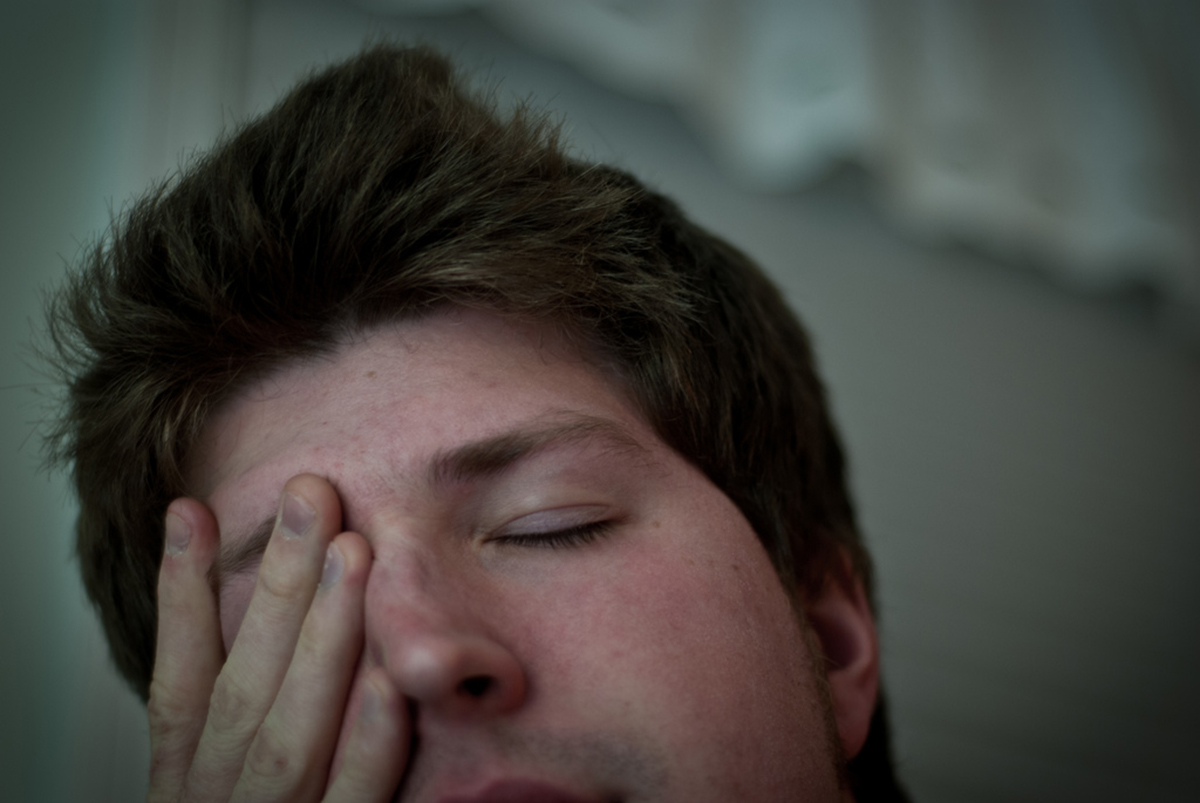How a person feels during the day depends greatly on how well he or she slept the last night. Similarly, how well a person sleeps during the night depends a lot on their daytime routine i.e. their life style, exercise level, bedtime habits etc. These choices can make a huge difference in the quality of sleep.

Today, there are millions of people around the world who suffer from sleep problems. A lot of research too has been done to look for effective ways to help people with sleep disorder. One of the most effective things which a person suffering from this condition could do is exercise.
Exercise Helps Improving Your Sleep Quality
A study on around 2,600 men and women, ages 18-85, revealed that 150 minutes of moderate to vigorous activity per week resulted in 65 percent improvement in sleep quality. The study also showed the importance of exercise for improvement of other health parameters. Less physically active people often complained about problems related to daytime sleepiness.
Exercise Early And Regularly
Experts say that at least 30 minute of physical activity daily helps in promoting high-quality sound sleep. Ensure you do any work out or exercise at least three to four hours before going to bed, as exercise stimulates the body to secrete certain hormones that activate the alerting mechanism in the brain. Increased level of alertness is fine unless you're trying to fall asleep.
A study conducted on a group of adults with chronic insomnia showed that when a moderate intensity exercise such as walking is performed, it helped to reduce the time required to fall asleep. Exercise also helped to increase the length of sleep as compared to the nights when participants did not do any exercise during the previous day. In the same study, it was observed that doing vigorous exercises like running, aerobics, and weight lifting did not improve the quality of sleep to a greater extent.
Similar studies have shown that regular exercises or long-term exercises do have an effect on the sleep of adults suffering from insomnia. In these studies, after around four to twenty four weeks of exercise, the adults with insomnia fell asleep more quickly, had better sleep quality and slept little longer than before they began exercising.
See Also: Effects Of Sleep Deprivation On Health
The Role Of A Proper Sleep Schedule
It is very useful to set up a convenient sleep schedule and try to stick to it. Getting up and going to bed at almost the same time, plus minus half an hour, be it on weekdays, weekends, holidays or days off, can help to set up a sleep cycle. If there is something that is not allowing you to sleep even after 15-20 minutes in the bed, it is better to get up and indulge yourself in some relaxing activity instead of continuing lying on bed.
Tips And Recommendations For Improving Sleep Quality
Sleep experts suggest that following simple methods can also help in improving the overall sleep quality:

- Eat Right: Dinner is the most important meal for a good night’s sleep. Avoid high fat foods for dinner, as it takes a lot of time to digest. Also try to have early dinner and avoid spicy and acidic foods in your meal, as it may cause acidity, indigestion or heartburn problems. It was noticed that in some people a light snack before bedtime actually promotes sleep. Try to experiment with your food habits and optimize your meals and snacks. In case, you need a bedtime snack, try to eat something small like a banana, a low fat milk yogurt, a small bowl of low sugar cereal or half a sandwich.
- Avoid caffeine, smoking, alcohol, nicotine: all these things tend to interfere with sleep. In the evenings, try to avoid having foods which contain caffeine. This includes cola, chocolate, tea and coffee. Smoking may also have stimulating effect and keep you awake.
- Create a bedtime routine: A peaceful bedtime routine sends a signal to your brain that it is time to unwind and let go of any stresses of the day. Apart from keeping your bedroom sleep-friendly with comfortable temperature, low noise and comfortable mattresses and pillows, try to follow a relaxing routine like reading a book, taking a warm bath before going to bed, having a light massage, listening to soft music etc. All these activities help to de-stress you. Research shows that all these activities, especially music, help in decreasing anxiety, heart and respiratory rate, blood pressure and has positive effects on sleep by relaxing the muscles.
One interesting study was conducted on 94 students aged between 19-28 years, who complained about having sleep problems. The participants were divided into three groups. One group listened to 45 minutes of classical music, second group listened to an audio book, and the third group received no intervention before bed time.
- Manage Stress: Sometimes stress and worry about self, work, family, school etc hinder your sleep. To help restore your sleep, it is important to consider healthy options to manage stress. Either put things out from your mind for tomorrow; or indulge yourself in a hobby or anything that takes your thoughts away from the worry. Write a diary, prioritize things, get organized, delegate tasks and set them aside for tomorrow.
- Limit Daytime naps: Try to limit nap times. If you have to do it, take a nap during the afternoon before 3 pm for maximum 30 minutes. If you work at night or in shifts, try to keep your window shades closed so that sunlight doesn’t disturb your daytime sleep.
See Also: Why You Need To Sleep On It: Sleep Helps Your Brain Consolidate New Memories
Know When To Contact Your Doctor
If, despite trying all the tips and tricks, you still experience problems with sleep, you may be in need for some professional assistance and advice. Consider visiting your doctor or physician if you still face the following symptoms:
- Frequent morning headaches
- Difficulty in falling asleep or staying asleep
- Loud snoring and pauses in breathing
- Persistent fatigue or daytime sleepiness
- Physically acting out dreams in sleep
- Crawling sensation in arms or legs while at bed
Almost everyone has an occasional sleepless night for one or another reason. But if the sleep problems persist for a long time, it is wise to identify the underlying cause and treat the symptoms.
- D.L. Sherrill, K. Kotchou, S.F. Quan Association of physical activity and human sleep disorders Arch Intern Med, 158 (1998), pp. 1894–1898
- S.D. Youngstedt Effects of exercise on sleep Clin Sports Med, 24 (2005), pp. 355–365
- H. Yoshida, T. Ishikawa, F. Shiraishi, T. Kobayashi Effects of the timing of exercise on the night sleep Psychiatry Clin Neurosci, 52 (1998), pp. 139–140
- S.D. Youngstedt, P.J. O'Connor, R.K. Dishman The effects of acute exercise on sleep: a quantitative synthesis Sleep, 20 (1997), pp. 203–214
- Harmat L, Takacs J, Bodizs R Music improves sleep quality in students, 2008 May
- 62(3):327-35.Photo courtesy of Betsssssy via Flickr: www.flickr.com/photos/betsssssy/521060626
- Photo courtesy of William Brawley via Flickr: www.flickr.com/photos/williambrawley/4256026700


Your thoughts on this